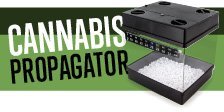Disclaimer
Zativo caters to private customers only, and does not supply commercial or industrial growers with large amounts of cannabis seeds. If we have reason to suspect that the ordered seeds are destined for growing cannabis on a larger-than-private scale, we reserve the right to dismiss that specific order.
Hemp in the New World: Colonial America
Hemp was already growing on the American continent when the first settlers from Europe arrived. No one knows knows quite how it got there, as hemp is thought to have originated in the Asian area of the world. It is possible that it may have been introduced my migratory birds, ship wrecks or possibly even Chinese explorers.
It is generally thought that the original colonists were not that keen on the idea of growing hemp, but the mother countries back in Europe insisted. One of the first recorded instances of hemp cultivation in the colonies was by the Puritans at Jamestown - as part of a contract with the Virginia Company. It is also thought that at the order of the French colony minister, Jean Talon of New France, all raw textiles owned by the colonists were to be confiscated. If they wanted it back they were forced to buy it back with hemp. Talon would also supply the seed to grow hemp for free, but it had to be reimbursed once the crop was grown.
This became a trend throughout the colonies of the New World. In Connecticut in 1637, and in Massachusetts in 1639, it became a legal requirement for every family to plant one teaspoon of hemp seeds. The reason given by the courts being so, “that we might, in time, have supply of linen cloth among ourselves”. Some colonies even passed laws allowing for people to pay their taxes in hemp.
If you were a farmer in colonial America, then there was a good chance you were obligated to grow hemp by law. It was seen as such a valuable commodity that many courts passed laws penalizing farmers who did not grow it. People were hired to spread the word of the wonders of hemp, to educate the masses; books were even published outlining how hemp would become the trademark of America.
Any land under British rule found themselves having to grow hemp without actually being able to legally spin or weave it. It was a clever tactic by the British; all hemp had to go back to the motherland to be processed, ensuring that the colonies were reliant on them. This did not last long however; immigrants coming over from the Great Britain taught peasants how to weave away from prying eyes. As the American market was flooded with hemp, it was not long before Great Britain’s strangle hold began to slip, as dependance on them lessened. The movement became so large and widespread that it actually led to the boycott of English fabric, a precursor to the war for independence. Not many Americans are aware of the significance of hemp in their history - that hemp played such a large role in their fight for freedom and the founding of their nation. This boycott birthed the American paper industry, a powerhouse that produced resources for communication during the war of independence.
Another little known fact that two of the founding fathers of the USA, George Washington and Thomas Jefferson, were both lovers of hemp. They both grew it on their personal plantations. Washington wrote in great detail as to how to cultivate hemp, noting that the quality of the seeds was vital and that male and female plants should be separated once their sex was established. In 1790 he was noted to have started growing “Indian Hemp”; this was not only for its superior hemp qualities, but also for the much more potent psychoactive properties not found in today's industrial hemp. Both Washington and Jefferson were also known for their dislike of tobacco, it was reported that both would often smoke hemp in favor of it.
Jefferson was very similar to Washington in his admiration of hemp. During his time as Governor of Virginia he allowed for its use as a currency when the government was in short supply of cash. He also saw it as a vastly superior crop to tobacco, noting how tobacco would exhaust the soil it was grown in, required too much care to grow and had no agricultural benefit for livestock. When asked to talk about hemp in comparison to tobacco he said hemp, “was of the first necessity to commerce and marine, in other words to the wealth and protection of the country.” He was even noted to receive the first patent for a hemp processing machine, which was reported to do the work of ten men.




